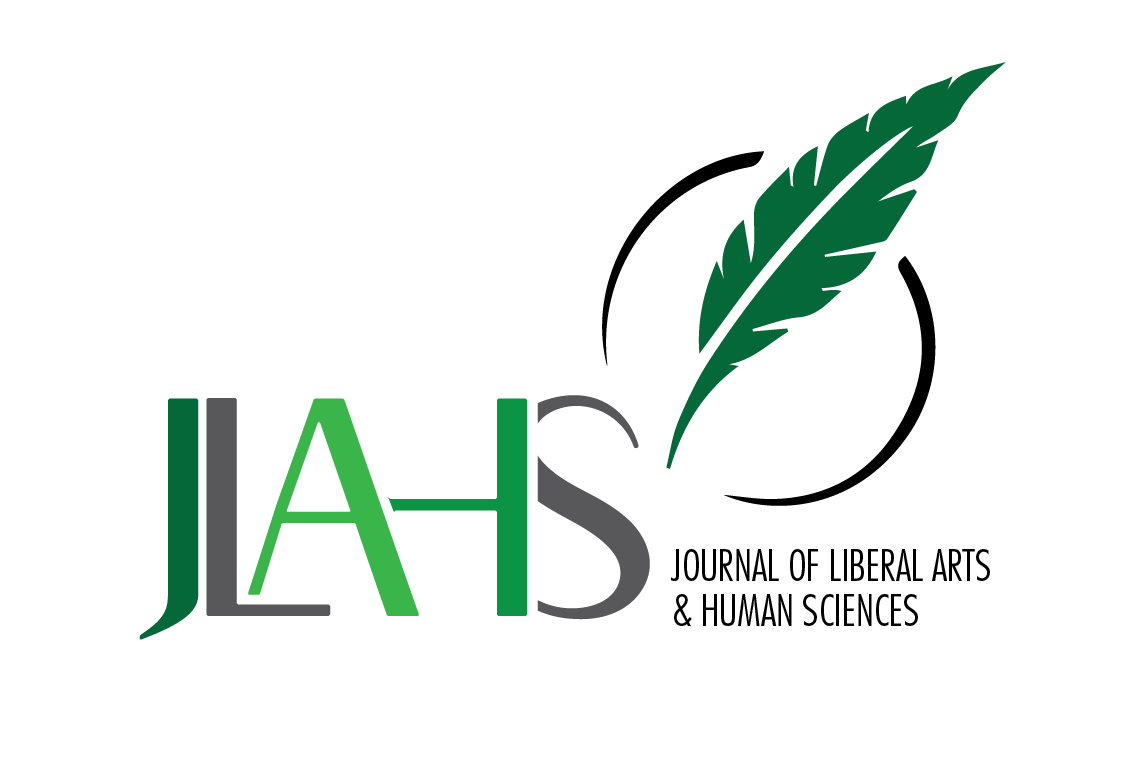The Journal of Liberal Arts & Human Sciences (JLAHS) is headed by the Editor-in-Chief and is assisted by Associate Editors, Editorial Board, Advisory Board and Managing Editors. The Editorial Board and Advisory Board is appointed on the basis of the journal’s need for representation in a particular academic discipline. The Editorial Team is committed to maintaining a high standard of interdisciplinary research and excellent academic standards.
The Review Process
The Journal of Liberal Arts & Human Sciences (JLAHS) is committed to a blind peer-review process. Peer reviewers are selected from a variety of Humanities and Social Sciences disciplines and a conscious effort is made to match the manuscript with a reviewer that has expertise in that particular area. Peer reviewers may accept a manuscript with no changes, request minor changes, demand major modifications or reject a manuscript all together.
License Agreement
By submitting the manuscript to JLAHS, the author/s certify that the work is original, has not been published in any other journal prior to this submission and does not infringe any existing copyright. The author/s further certify that JLAHS is the sole publisher of the manuscript.
Ethical Approval of Research
If the submitted research includes human subjects, author/s must include the processes undertaken in tandem with ethical standards. Approval from an ethics committee should have been obtained before starting the research, and a statement comprising of the details of the ethics committee and/or institutional review board and date of approval should be included in the manuscript.
In case of sample collection, evidence of written or verbal consent must be taken before using the information. Alternatively, the authors must include a detailed explanation as to why this consent was not obtained or was not necessary. Please note that the Editorial Board reserves the right to request additional documents such as signed consent forms where necessary.
Declining a Manuscript
Based on the outcome of the peer-review process, JLAHS might reject a manuscript if the research does not provide sufficient new information or is too preliminary for publication.
Appeal for Declined Manuscript
Author/s whose manuscripts have been declined have the right to send a letter of appeal to the Editor-in-Chief giving a detailed explanation. This appeal will then be reviewed by the Editor-in-Chief, Associate Editors and the Editorial Board and a decision will be made accordingly.
Please note that revised articles do not qualify for appeal.
Policy of Selection of Editors, Reviewers and Other Editorial Board Members
For the selection of the editorial and advisory teams, job descriptions and vacancy announcements are based on the capacity and vision of JLAHS.
Withdrawal policy and Appealing the Editorial Decision
As per JLAHS’s copyright policy, the copyright of the manuscript belongs to the journal once it is submitted. Author/s may request to withdraw the manuscript during initial stages although they will be asked to explain in writing. The policy for withdrawing after the peer-review process is quite strict and the author might be blacklisted from future submissions.
If the author/s wish to pursue corrective action or retraction of their published manuscript, they must contact the Editor-in-Chief. The author will be asked to give reasons in writing and the Editorial and Advisory Board will ensure that the appropriate procedure is carried out in the most swift way possible. The Boards will also ensure that the procedure is carried out in an unprejudiced manner. JLAHS will review the manuscript’s history, peer review and all correspondence between the author/s, peer reviewers and editor.
